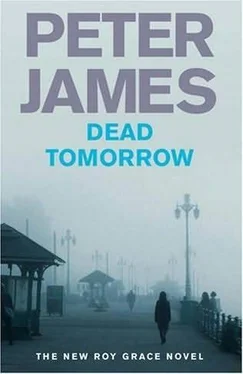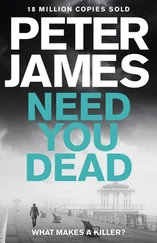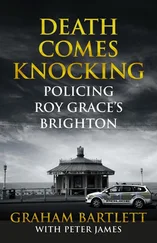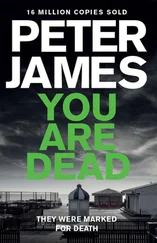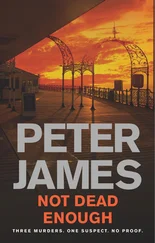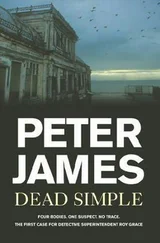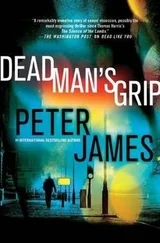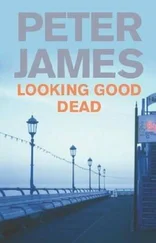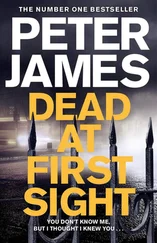‘Rares. This is Uncle Vlad. He will look after you.’
Cosmescu greeted the boy with a handshake and, in his native Romanian tongue, told him he was happy to welcome him to England. The boy mumbled a reply that he was happy to be here and hoped to see his girlfriend, Ilinca, soon – this morning?
Cosmescu assured him Ilinca was waiting for him and longing to see him. They were going to drop Frau Hartmann off, then go on to see Ilinca.
The boy’s eyes lit up and, for the first time in a long time, he smiled.
*
Five minutes later, the brown Mercedes, with grubby little buck-toothed Grigore at the wheel, pulled out of Gatwick Airport and on to the link road to the M23 motorway. Minutes later they were heading south towards the city of Brighton and Hove. Marlene Hartmann sat in the front passenger seat. Rares sat quietly in the back. This was the start of his new life and he was excited. But more than anything, he could scarcely wait to see Ilinca again.
It had only been a few weeks since they parted company, in a flurry of kisses and promises and tears. And less than a couple of months since this angel, Marlene, had come into their lives to rescue them.
It felt like a dream.
His real name was Rares Petre Florescu and he was sixteen years old. Some time back, he could not remember exactly when but it was shortly after his seventh birthday, his mother had run away from his father, who drank and hit her constantly, taking him with her. Then she had met another man. This man did not want a family, she had explained sadly to Rares, so she was putting him in a home where he would have lots of friends, and would be with people who loved and cared for him.
Two weeks later a silent old woman, with a face as flat and hard as a steam iron, led him up four flights of stone stairs, into a crowded, flea-infested dormitory. His mother was wrong. No one loved or cared for him there, and at first he was bullied. But eventually he made friends with other children his own age, though never with older boys, who regularly beat him up.
Life was hell. Early every morning they were forced to sing national songs, and like all the others, boys and girls, if he did not stand up straight, he was beaten. When he was ten he started wetting his bed and was beaten regularly for that. Gradually, he learned to steal from some of the older boys, who seemed to be able to get extra food. One day he was caught with two chocolate bars he had taken.
To escape retribution, he ran away. And stayed away, joining a community who hung out at Bucharest’s main railway station, Gara de Nord, begging and doing drugs. They slept wherever they could, sometimes in doorways, sometimes in tiny one-room shacks built along the overland steam pipes, and sometimes in cavities beneath the roads.
It was meeting pretty, lost Ilinca, in a hole beneath the road when he was fourteen, that had brought Rares alive for the first time. She had given him a reason to go on living.
Dragging their bedding further up the tunnel beneath the hot pipeline, away from their friends, they made love and they dreamed.
They dreamed of a better life.
Of a land where they could have a home of their own.
And then one day, on the street, fresh from stealing several bottles of Aurolac, he met the angel he had always believed – but had never dared to hope – would visit him.
Her name was Marlene.
And now he was in the back seat of her Mercedes car, and in a short while he would meet his beloved Ilinca.
He was in a state of bliss.
The car was stopping in a residential street. It was so clean. It was like one of the rich sectors of Bucharest where he sometimes went begging.
Marlene turned round and said to him, ‘Vlad and Grigore will look after you now.’
‘Will they take me to see Ilinca?’
‘Exactly,’ she replied. Then she climbed out of the car and walked to its rear.
Peering through the rear windscreen, Rares saw the boot lid pop open. A few moments later, she slammed it shut and walked up the path to the front door of a house, holding an attaché case. He watched her, waiting for her to turn and wave at him. But she just kept looking straight ahead.
The Mercedes pulled away, sharply, jerking him against the seat back.
Roy Grace sat in his office, reading through his notes from the briefing meeting. Despite the damp, grey day outside, he was in a sunny mood. In fact, he was feeling happier and more positive about life than he could ever remember. He was on a total high. His 7 a.m. meeting with an even more sour than usual ACC Vosper had not made even the slightest dent in his mood.
This afternoon he was meeting with a solicitor to work out the details of having Sandy declared legally dead. Finally he felt as if the past really was behind him, that he could close the door and move on. He was going to marry Cleo. They were going to have a baby.
Everything else suddenly seemed unimportant this morning – and that was a luxurious feeling he knew he could not allow himself to revel in. He had a ton of work ahead of him. His job was to serve the public, to catch criminals, to make the city of Brighton and Hove a safer place. He viewed any serious crime in this city as a failing by the entire police force and therefore a failing in some part by himself. He couldn’t help it, that was the way he was.
Three dead teenagers lay in fridges in the mortuary because the police had failed in some way to protect them. Now at least that wrong could be partially redressed by capturing whoever did this, and hopefully depriving them of their liberty – and ability ever to do this again – forever.
In front of him were the names of doctors in the UK who had been struck off the medical register. As he read down the very long list, looking for anyone who might be capable of organ transplantation work, he was amazed at the variety of offences.
He had always loathed the idea of bent doctors, almost as much as he loathed the idea of bent coppers – of whom he had encountered mercifully few. He hated anyone in public service, in a position of trust, who exploited it through either corruption or incompetence.
The first name on the list was a detox doctor struck off for negligence leading to the death of a heroin addict. Not a likely candidate, Grace thought.
Next were a husband and wife GP team who ran a private nursing home. He read more. They had been struck off for the disgusting condition of the place and leaving elderly patients in a state of distress. Not likely either.
A junior doctor who failed his training was struck off after lying to get a job as a consultant. Grace read on, with interest. This was just the kind of person – while not actually a transplant surgeon – who might get taken on to assist in illegal operations at a private clinic. He wrote the man’s name down in his policy book: Noah Olujimi.
Then he had a sudden thought, and wondered why it had not occurred to him sooner. What procedures were in place at UK hospitals, and UK Transplant, the national transplant centre, where transplants were coordinated, to prevent an illegally acquired organ entering the system? Plenty of rigorous ones, he was sure, but he made a note for this to be followed up.
He continued reading down the list.
A GP struck off for downloading child porn. No.
The next held his interest. A GP who was struck off for committing euthanasia on a cancer victim patient. Euthanasia was something Grace had sympathy with. He remembered, as a child, visiting his beloved, dying grandfather, a tall bear of a man who had lain in bed, screaming in pain, begging for someone to help him, to do something, and then sobbing, while everyone in the room looked on helplessly, except his mother who sat by his bed, holding his hand, praying. He had never forgotten that visit, the last time he had seen him. Nor the uselessness of his mother’s prayers.
Читать дальше
